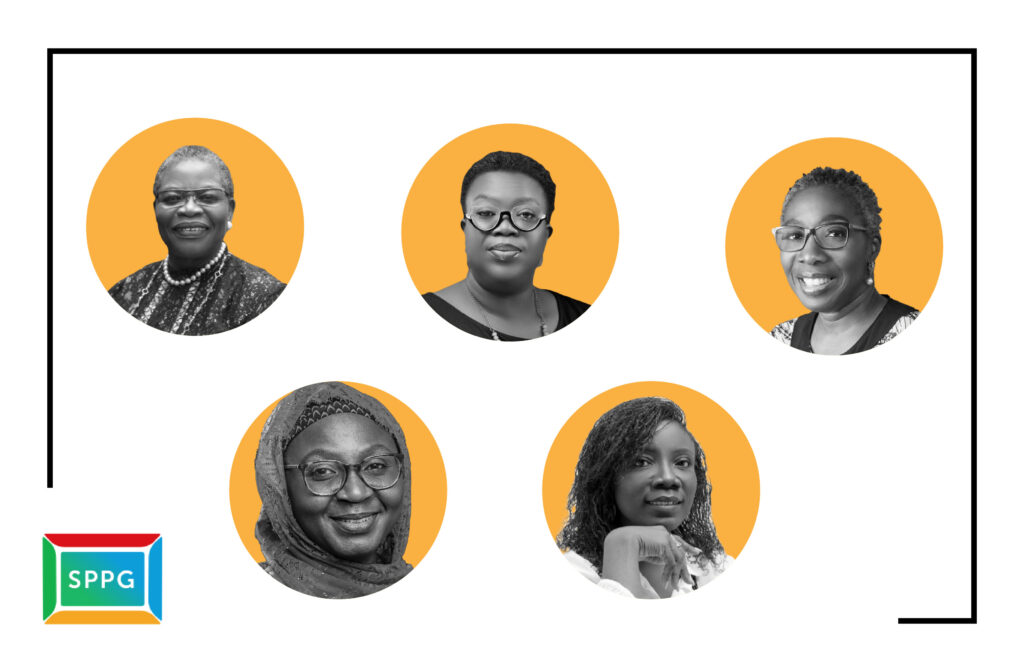The recent incident involving Senator Natasha and the sexual harassment allegations that led to her suspension has once again spotlighted the harsh realities women face in politics. But this is not just about Natasha; it is about a system that continues to resist the full inclusion of women. Irrespective of one’s stance on her specific case, what is undeniable is the broader issue: women in politics are consistently undermined, dismissed, and structurally disadvantaged.
The Real Problem: Beyond Representation
When discussing the barriers women face in politics, the focus is often on numbers and the dwindling number of women in elective and appointive positions. While numerical representation is crucial, it is only one aspect of the problem. The real issue extends beyond the presence of women in office to the quality of governance, decision-making, and the extent to which women’s voices, needs, and aspirations are factored into policies.
In Nigeria, women occupy less than 5% of elected positions despite making up nearly 50% of the population. The lack of representation directly impacts policy outcomes only 13% of national budgets worldwide address gender equality, and gender-responsive budgeting remains largely absent in Nigeria. Women experience the outcomes of governance more acutely over 70% of Nigerians living in poverty are women, and 60% of the country’s out-of-school children are girls.
This means that bad governance hurts women more. Therefore, the issue of representation is not just about having women in office but ensuring that governance structures and policies genuinely reflect women’s realities.
The Cultural Albatross: The Invisible Chains Holding Women Back
Policy changes alone will not fix the problem. The major force resisting women’s full participation in politics is culture. Policies can be written, quotas can be introduced, and laws can be amended, but culture chooses policy for breakfast. If the underlying cultural biases remain unchanged, policies will have limited impact.
The idea that politics is a “man’s game” is ingrained from childhood. Women are conditioned to be supporters, not leaders. This is reinforced by mothers who prioritize marriage over a career for their daughters, female elders who question why a woman would aspire to leadership, and societal norms that subtly or overtly discourage female ambition.
Patriarchy is real, but it is not solely sustained by men. Women, too, internalize and enforce patriarchal norms, sometimes becoming the biggest gatekeepers against their progress. To dismantle this, there needs to be an intentional effort to break the mental chains that restrict women’s aspirations. Much like an elephant that remains tied to a small post even when it has outgrown its restraints, many women do not pursue leadership because they have been conditioned to believe it is not their place.
Engaging Men: Rethinking the Narrative
Breaking cultural barriers also requires engaging men as allies. The common resistance from men stems from a fear that empowering women equates to disempowering men. This is a flawed perspective.
The messaging must shift to show that when women are empowered, society as a whole benefits. The economic, political, and social gains from women’s inclusion are well-documented. Research has shown that countries with greater gender equality tend to have stronger economies, lower corruption, and better governance outcomes. Women bring different perspectives, problem-solving approaches, and leadership styles that can enrich governance.
Men must be engaged in ways that do not make them feel attacked but rather involved in the solution. Male allies should be encouraged to champion women’s leadership, not as a token gesture but as a fundamental principle of progress.
Structural Barriers: The Need for Deliberate Access
Beyond cultural shifts, structural barriers must also be dismantled. Women need access to the political structures that enable participation, such as funding, networks, and political party inclusion.
- Access to Funding: Running for office requires substantial resources, and women often lack the financial backing that male politicians receive. Women receive only 10% of electoral campaign funding globally, and in Nigeria, female candidates struggle to access political financing from party structures and donors. There needs to be dedicated funding pools and financial support systems for female aspirants.
- Access to Political Networks: Politics is built on relationships, and many of the key political networks remain male-dominated. 85% of Nigerian political party decision-making bodies are male-led, making it harder for women to navigate and gain influence.
- Party Inclusion: Political parties must be restructured to be more inclusive of women, not just in name but in practice. This includes addressing party structures that are hostile to female aspirants and enforcing gender quotas effectively.
What Happens When Women Gain More Political Access?
When women enter politics in significant numbers, governance changes. Studies have shown that women in leadership positions tend to prioritize policies that promote education, healthcare, and social welfare. In countries with high female political participation, there is 35% more investment in social services, and corruption levels tend to be lower.
Imagine a Senate with 40% female representation. Would Natasha’s case have been handled differently? Would a stronger contingent of women have insisted on a proper investigation into the sexual harassment claims rather than focusing solely on her suspension? The reality is, that when women are adequately represented, issues that affect them receive the attention they deserve.
Countries with strong female political participation also see higher GDP growth rates, improved governance, and policies that better reflect the needs of the broader population. The presence of women in leadership is not just symbolic—it delivers measurable economic and social benefits.
The Natasha Case: A Reflection of a Broken System
 The case of Senator Natasha underscores the challenges women face in politics. Her suspension over an outburst in the Senate raises critical questions. Why was the focus on her reaction rather than the sexual harassment allegation that triggered it? Why are male politicians who have engaged in misconduct often spared similar disciplinary measures?
The case of Senator Natasha underscores the challenges women face in politics. Her suspension over an outburst in the Senate raises critical questions. Why was the focus on her reaction rather than the sexual harassment allegation that triggered it? Why are male politicians who have engaged in misconduct often spared similar disciplinary measures?
Had there been more women in the Senate, the conversation would likely have been different. A 40% female Senate would have enabled intelligent, structured engagement on sexual harassment issues, setting a precedent for accountability. Instead, her removal silences not just Natasha, but the millions of constituents she represents.
This case is a stark reminder that political institutions remain structurally biased against women, penalizing them for behaviours often tolerated in men. It highlights why representation matters not just for individuals, but for the integrity of governance itself.
The School of Politics, Policy, and Governance (SPPG): Building the Future of Leadership
 One of the most critical solutions to these challenges is building a pipeline of values-based leaders both women and men who are equipped with the skills, knowledge, and ethical grounding to transform governance. The School of Politics, Policy, and Governance (SPPG) is doing exactly that.
One of the most critical solutions to these challenges is building a pipeline of values-based leaders both women and men who are equipped with the skills, knowledge, and ethical grounding to transform governance. The School of Politics, Policy, and Governance (SPPG) is doing exactly that.
Founded by Dr. Oby Ezekwesili, Dr. Abiola Akiyode-Afolabi, Mrs. Alero Ayida-Otobo, Dr. Amina Salihu, Dr. Yetunde Arobieke, and other trailblazers, SPPG is reshaping the political landscape by training a new generation of leaders committed to accountability, inclusivity, and transformational governance. The school provides the tools for women and men to break systemic barriers, navigate the political space, and drive reforms that benefit all Nigerians.
Through this initiative, we are not just identifying problems we are actively creating solutions. SPPG stands as a beacon of hope, showing that change is not only possible but already underway.
The Path Forward: Changing the System, Not Just Individuals
Women must be allowed to dream and participate in politics without systemic pushback. This requires:
- Cultural Reorientation: Societal norms must change to make female leadership as natural as male leadership.
- Male Allyship: Men must be engaged as partners in the push for gender equality in politics.
- Structural Reforms: Political and financial systems must be restructured to provide equitable opportunities for women.
- Legal Protections: Gender-sensitive policies must be implemented and enforced to ensure women have equal opportunities.
- Political Will: Governments and political parties must be held accountable for failing to include women in meaningful decision-making roles.
Natasha’s case is a reminder of the work that still needs to be done. But the goal should not just be to react to individual incidents; it should be to build a system where such incidents are not normalized.
The time to accelerate access to opportunities for women in politics is now.
What will you do? Will you challenge biases in your circles? Will you advocate for inclusive policies? Will you support female candidates? The responsibility to change this reality belongs to all of us. The future of governance is at stake.

About the Author
Century Favour is an Entrepreneur, Strategy, Technology, Marketing and Creative professional passionate about driving economic & social impact. Through his ventures (Endgame The Strategy Company, Do take action & centuryfavour.com) he works to ensure that People, Businesses, Governments & Non-Profits grow, succeed, achieve their strategic objectives, drive sustainable development and positively shape the future of the people & communities they serve.

About the Author
Century Favour is an Entrepreneur, Strategy, Technology, Marketing and Creative professional passionate about driving economic & social impact. Through his ventures (Endgame The Strategy Company, Do take action & centuryfavour.com) he works to ensure that People, Businesses, Governments & Non-Profits grow, succeed, achieve their strategic objectives, drive sustainable development and positively shape the future of the people & communities they serve.